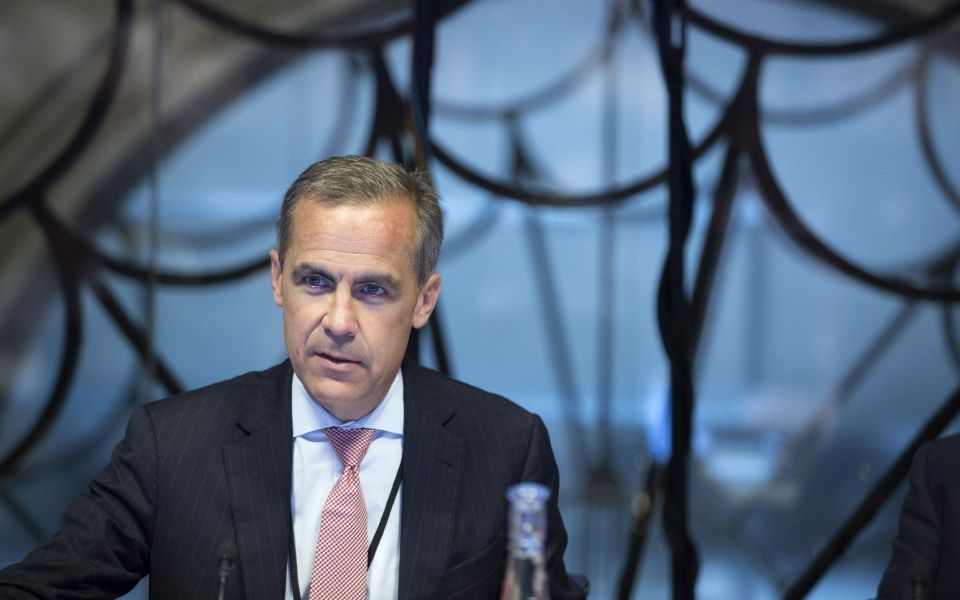
Bank of England raises interest rates – are there more hikes to come?

The Bank of England’s (BoE) monetary policy committee (MPC) has raised interest rates for the first time since November 2007, in a move that has been well-flagged in recent months.
The policy interest rate has been raised from a record low of 0.25 percent back to 0.50 percent, where it sat for most of the past decade until the Bank’s decision to cut just after the Brexit referendum.
The Bank also announced that it has not changed its quantitative easing policy.
Why rates have been raised
Since the Brexit referendum, the economy has performed better than expected, while inflation has risen sharply, largely due to the depreciation in sterling. With inflation at 3 percent, any further rise will force the BoE to write to the Chancellor of the Exchequer to explain the circumstances of the overshoot, and what it is doing to return inflation back to target.
The MPC believes that the economy’s ability to grow has been hit by Brexit. As a result, it estimates that the slack that remains in the economy is limited.
Unemployment is at a 42-year low, which should cause wages to accelerate in the near future. Of course, the BoE has predicted big increases in wages in the past, and has so far been badly wrong.
The MPC was not unanimous in backing the rise in interest rates. Two of the nine member committee voted against the increase, highlighting that substantial risks remain for the economy.
Inflation forecasts imply further rate hikes
While many are asking whether this interest rate rise will have much of a negative impact on growth, the more important question is whether the MPC sees this as a one-off rise, or whether this is the first of many.
The Bank publishes an inflation forecast which is conditioned by a profile of future interest rates derived by market pricing. This path shows two interest rate rises over the next three years.
However, as inflation is above 2 percent at the end of the forecast, this should be seen as a signal from the BoE that more rate rises than the two assumed at present may be required.
This first rate rise will undoubtedly burden those that are struggling to make ends meet, but for the vast majority, it will have a small impact.
That said, it is unhelpful when wages are struggling to keep up with inflation, and when growth is slowing.
Markets not expecting another rise soon
The initial response to today’s announcement in markets is interesting.
The pound has fallen by more than 1 percent against both the US dollar and euro, while the market-assumed date for the next rise in interest rates has been pushed back from the third or fourth quarter of 2018 to the first quarter of 2019. It suggests that investors do not believe the MPC will have the conviction to hike again anytime soon.
The UK economy has gone from being one of the best performing economies in the advanced world last year to the second weakest in the G20 last quarter (only ahead of crisis-ridden Brazil).
This rate rise could go down in history as the Bank of England’s "Trichet moment" – possibly repeating the European Central Bank’s perceived mistake in 2011.
- Take an investing test: investIQ
- Talk to the author: @AzadZangana
Important Information: The views and opinions contained herein are those of Azad Zangana, Senior European Economist and Strategist, and may not necessarily represent views expressed or reflected in other Schroders communications, strategies or funds. The sectors and securities shown above are for illustrative purposes only and are not to be considered a recommendation to buy or sell. This material is intended to be for information purposes only and is not intended as promotional material in any respect. The material is not intended as an offer or solicitation for the purchase or sale of any financial instrument. The material is not intended to provide and should not be relied on for accounting, legal or tax advice, or investment recommendations. Reliance should not be placed on the views and information in this document when taking individual investment and/or strategic decisions. Past performance is not a guide to future performance and may not be repeated. The value of investments and the income from them may go down as well as up and investors may not get back the amounts originally invested. All investments involve risks including the risk of possible loss of principal. Information herein is believed to be reliable but Schroders does not warrant its completeness or accuracy. Reliance should not be placed on the views and information in this document when taking individual investment and/or strategic decisions. The opinions in this document include some forecasted views. We believe we are basing our expectations and beliefs on reasonable assumptions within the bounds of what we currently know. However, there is no guarantee than any forecasts or opinions will be realised. These views and opinions may change. Issued by Schroder Investment Management Limited, 31 Gresham Street, London EC2V 7QA. Registration No. 1893220 England. Authorised and regulated by the Financial Conduct Authority
City A.M.'s opinion pages are a place for thought-provoking views and debate. These views are not necessarily shared by City A.M.